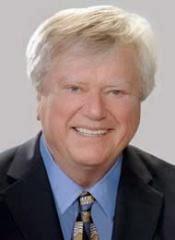By Caleigh Ellis

During this seminar we heard about the reforming of leisure in China and the implications that this could have as many Chinese immigrate to Canada. The declining birth rate in British Columbia and tightening immigration laws in Canada mean that in order to maintain our population we need to make immigrants feel at home in our country and our communities. Leisure can play a role in the acclimation of people to new surroundings but leisure in Canada and China are very different. Chinese prefer to view their leisure as balance activities (special events, theme parks, etc.) as opposed to Canadians who participate in core activities (activities done on a regular basis). This means that for Chinese to adjust to life in Canada it will take a proactive effort by Canadians.Non-Governmental Organizations (NGO’s) play a big role in Canadian leisure but not in Chinese leisure. When Chinese immigrate to Canada they may not understand or trust the NGO’s that create leisure opportunities that can help to make their transition into life in Canada more comfortable. This means that leisure organizations and NGO’s need to be innovative in the creation of recreation opportunities for Chinese immigrants. The reform of leisure in China has seen portable leisure programs bring core leisure opportunities to the people. This has been done through the addition of rooftop gardens and street calming to allow for leisure opportunities close to the home. As immigrants move to Canada one of the ways to innovatively improve their leisure lives is to bring leisure to them. Bringing leisure opportunities to them can help them to meet new people and acclimatize to their new neighbourhoods. This could be especially effective in Chinese immigrant communities because many immigrants move to the same neighbourhoods, for example, Richmond.
This seminar left me with several questions on the future of leisure in Canada. Firstly, what NGO’s already exist to help immigrants adjust to their new surroundings? Do these NGO’s work with all immigrants or immigrants from a specific country? Secondly, do the NGO’s that work to help immigrants understand their leisure needs? Is there an opportunity for leisure professionals to help educate the NGO’s about the importance of leisure and to engage with new immigrants to ensure that their needs are being met?

During this seminar we heard about the reforming of leisure in China and the implications that this could have as many Chinese immigrate to Canada. The declining birth rate in British Columbia and tightening immigration laws in Canada mean that in order to maintain our population we need to make immigrants feel at home in our country and our communities. Leisure can play a role in the acclimation of people to new surroundings but leisure in Canada and China are very different. Chinese prefer to view their leisure as balance activities (special events, theme parks, etc.) as opposed to Canadians who participate in core activities (activities done on a regular basis). This means that for Chinese to adjust to life in Canada it will take a proactive effort by Canadians.Non-Governmental Organizations (NGO’s) play a big role in Canadian leisure but not in Chinese leisure. When Chinese immigrate to Canada they may not understand or trust the NGO’s that create leisure opportunities that can help to make their transition into life in Canada more comfortable. This means that leisure organizations and NGO’s need to be innovative in the creation of recreation opportunities for Chinese immigrants. The reform of leisure in China has seen portable leisure programs bring core leisure opportunities to the people. This has been done through the addition of rooftop gardens and street calming to allow for leisure opportunities close to the home. As immigrants move to Canada one of the ways to innovatively improve their leisure lives is to bring leisure to them. Bringing leisure opportunities to them can help them to meet new people and acclimatize to their new neighbourhoods. This could be especially effective in Chinese immigrant communities because many immigrants move to the same neighbourhoods, for example, Richmond.
This seminar left me with several questions on the future of leisure in Canada. Firstly, what NGO’s already exist to help immigrants adjust to their new surroundings? Do these NGO’s work with all immigrants or immigrants from a specific country? Secondly, do the NGO’s that work to help immigrants understand their leisure needs? Is there an opportunity for leisure professionals to help educate the NGO’s about the importance of leisure and to engage with new immigrants to ensure that their needs are being met?
